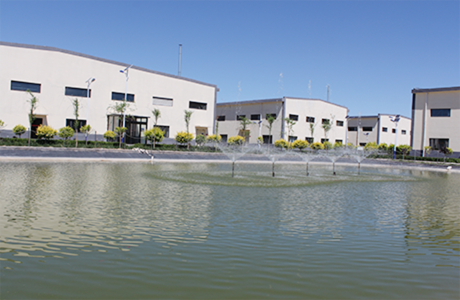- Afrikaans
- Albanian
- Amharic
- Arabic
- Armenian
- Azerbaijani
- Basque
- Belarusian
- Bengali
- Bosnian
- Bulgarian
- Catalan
- Cebuano
- Corsican
- Croatian
- Czech
- Danish
- Dutch
- English
- Esperanto
- Estonian
- Finnish
- French
- Frisian
- Galician
- Georgian
- German
- Greek
- Gujarati
- Haitian Creole
- hausa
- hawaiian
- Hebrew
- Hindi
- Miao
- Hungarian
- Icelandic
- igbo
- Indonesian
- irish
- Italian
- Japanese
- Javanese
- Kannada
- kazakh
- Khmer
- Rwandese
- Korean
- Kurdish
- Kyrgyz
- Lao
- Latin
- Latvian
- Lithuanian
- Luxembourgish
- Macedonian
- Malgashi
- Malay
- Malayalam
- Maltese
- Maori
- Marathi
- Mongolian
- Myanmar
- Nepali
- Norwegian
- Norwegian
- Occitan
- Pashto
- Persian
- Polish
- Portuguese
- Punjabi
- Romanian
- Russian
- Samoan
- Scottish Gaelic
- Serbian
- Sesotho
- Shona
- Sindhi
- Sinhala
- Slovak
- Slovenian
- Somali
- Spanish
- Sundanese
- Swahili
- Swedish
- Tagalog
- Tajik
- Tamil
- Tatar
- Telugu
- Thai
- Turkish
- Turkmen
- Ukrainian
- Urdu
- Uighur
- Uzbek
- Vietnamese
- Welsh
- Bantu
- Yiddish
- Yoruba
- Zulu
ኅዳር . 10, 2024 12:24 Back to list
Exploring the Benefits of Phosphate Injection in Agricultural Practices for Enhanced Crop Growth
Understanding Phosphate Injection Its Importance and Applications
Phosphate injection refers to the process of introducing phosphate into various systems, particularly in agricultural, industrial, and environmental contexts. Phosphates are chemical compounds that contain phosphorus, an essential nutrient for plant growth and a critical element in various biological processes. The method of phosphate injection can significantly influence crop yields, enhance water quality, and optimize industrial processes.
The Role of Phosphates in Agriculture
In agriculture, phosphate injection is primarily utilized to increase soil fertility and promote healthy plant growth. Phosphorus is one of the three main nutrients necessary for plants, alongside nitrogen and potassium. It plays a vital role in photosynthesis, energy transfer, and the synthesis of nucleic acids. However, phosphorus is often found in limited quantities in soils, necessitating the application of phosphate fertilizers to ensure adequate supply.
The process of phosphate injection can take various forms, including direct soil injection or incorporation into irrigation systems. Direct soil injection involves injecting phosphate solutions deep into the soil, allowing for enhanced absorption by plant roots. This method minimizes nutrient loss due to runoff and maximizes the concentration of phosphorus available to plants.
Furthermore, the timing and method of phosphate application can have a significant impact on crop performance. For instance, injecting phosphates shortly before the planting season can provide immediate availability for seedlings, while applications during the growing season can help maintain optimal nutrient levels for robust growth.
Environmental Considerations
While phosphate injection aids in agricultural productivity, it also raises concerns about environmental impacts. Over-application of phosphates can lead to runoff, contributing to water quality issues such as eutrophication. Eutrophication occurs when excess nutrients flow into water bodies, leading to algal blooms that deplete oxygen levels and harm aquatic life.
phosphate injection

To mitigate these risks, best management practices are essential. This includes monitoring soil nutrient levels, using precision agriculture techniques to apply fertilizers judiciously, and adopting methods like split applications that distribute phosphorus throughout the growing season.
Another emerging practice is the use of more environmentally friendly phosphate sources, such as organic fertilizers or recycled phosphates from waste materials. These alternatives not only support plant growth but also reduce the environmental footprint associated with traditional phosphate fertilizers.
Industrial Applications of Phosphate Injection
Beyond agriculture, phosphate injection is also significant in various industrial processes. For instance, phosphate compounds are widely used in detergents, water treatment, and food additives. In water treatment, phosphate injection can help control corrosion in pipes and improve the efficacy of disinfection processes.
Phosphates are also integral in industrial production, serving as critical components in ceramics, glass manufacturing, and metallurgy. In these contexts, they play a role in modifying physical and chemical properties, enhancing product quality and performance.
Conclusion
Phosphate injection is a crucial practice that bridges agricultural productivity, environmental management, and industrial applications. Understanding its nuances allows farmers, industrial operators, and policymakers to optimize its use efficiently while addressing potential environmental impacts.
As we continue to innovate and develop new approaches for sustainable agriculture and industrial practices, the role of phosphate injection will undoubtedly evolve. By embracing technologies that enhance the efficiency of phosphate use and minimize adverse effects, we can support global food security and protect our natural ecosystems. Thus, promoting a balanced approach that recognizes the importance of phosphorus in our daily lives remains paramount for a sustainable future.
-
Guide to Oxytetracycline Injection
NewsMar.27,2025
-
Guide to Colistin Sulphate
NewsMar.27,2025
-
Gentamicin Sulfate: Uses, Price, And Key Information
NewsMar.27,2025
-
Enrofloxacin Injection: Uses, Price, And Supplier Information
NewsMar.27,2025
-
Dexamethasone Sodium Phosphate Injection: Uses, Price, And Key Information
NewsMar.27,2025
-
Albendazole Tablet: Uses, Dosage, Cost, And Key Information
NewsMar.27,2025













